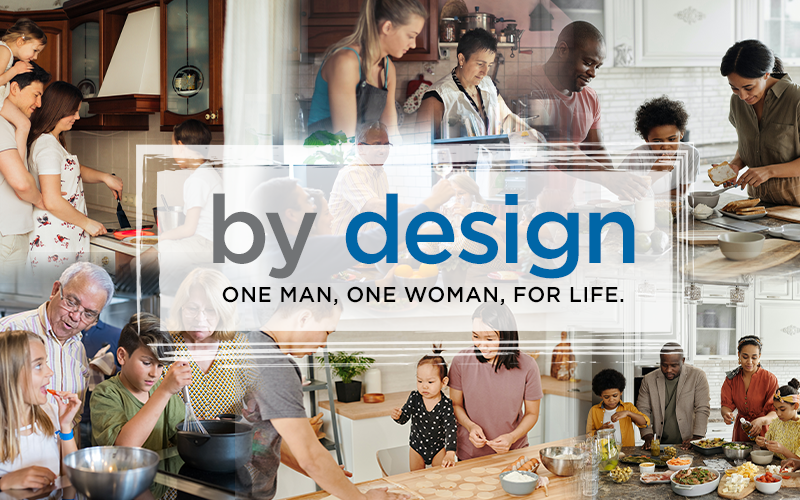AI Is a Tool, Not a Friend
Sign up for a six month free
trial of The Stand Magazine!
Every generation discovers something that promises progress, convenience, and safety… until the cost becomes clear. In the early 1900s, asbestos was hailed as a miracle material. It insulated homes, ships, and factories. It was fireproof, durable, and cheap. No one wanted to imagine that the same fibers protecting workers would later choke their lungs and claim their lives.
Lead followed a similar story. It made paint brighter. For decades, it was in our walls, our cars, and even our toys. It wasn’t until millions had been exposed that society finally understood the truth: what seemed harmless was slowly poisoning us.
Even guns - tools that can serve a purpose in defense - remind us that powerful inventions demand boundaries. We lock them away. We train before we use them. We never hand them to children and call it harmless fun.
Artificial intelligence is our generation’s asbestos or lead paint - not because it is evil, but because it is untested in the deepest parts of human life. Its potential for good is undeniable, but too few are asking whether we understand its long-term effects on the human heart.
Artificially intelligent friendship
Artificial intelligence has become a familiar voice in many homes. It plays music, answers questions, manages schedules, and now it even talks about our feelings. With more advanced AI tools like ChatGPT, what began as a helpful tool is fast becoming something more personal.
A growing number of AI users are starting to view it as a friend and confidant. They can open a chatbot app on their phone whenever they feel lonely and instantly conjure a thing that talks like a person, someone with whom they can share their deepest feelings with no fear of rejection or judgment. Yet beneath that friendly voice is a simple truth: AI is designed to fulfill the user’s wishes.
That is one of the quiet dangers of this technology… and it’s a feature, not a bug. AI, at its core, exists to please. It studies our words and patterns, then responds in the way we most like. It’s efficient, responsive, and even comforting. But it does not push back. It does not challenge. AI chatbots are yes-men. They can give mostly reliable answers to factual questions, but when faced with emotional or moral depth, they tend to agree with whatever position the user takes. They mirror rather than offer objective counsel.
When I experiment with ChatGPT, for example, it often uses Christian phrases, drawing from ideas and tones it has learned that I appreciate. The result feels personal… but it’s not. AI can’t be Christian. It doesn’t actually have real opinions. It won’t push back or challenge me in the way a human would.
A person can’t grow in a so-called relationship or friendship with AI. Over time, if we rely on that voice for comfort, reflection, or affirmation, we’re not growing. We’re circling ourselves. We become more deeply entrenched in our current ways of thinking.
AI companionship may be preferable to human companionship for some because AI is designed to serve. It puts them at the center of the universe. The person becomes the sun around which the machine revolves. They are enabled and encouraged to worship themselves.
AI and your child
If that is what AI does to adults, the implications for children are even greater. Kids are already growing up surrounded by voices that obey their every command. “Alexa, play a song.” “Siri, tell me a joke.” “Hey Google, what’s the capital of Iceland?” There’s nothing wrong with the appropriate use of an AI tool. But what happens when a child begins to associate companionship with perfect compliance?
The answer lies in something far older than technology. The parent should be the child’s go-to friend in the home. Children will always have questions, and when life becomes confusing, painful, or frightening, they need someone who actually listens to and loves them.
For parents, that means involvement. Being tuned into what’s going on in their lives. Talking to them, asking what they are thinking about, and then listening. That is the key. Children should feel invited and safe when they express their deep thoughts and feelings to their parents, not dismissed or feel as if their honest questions will harm the relationship.
If parents don’t occupy that emotional space, something else will. It might be social media. It might be an influencer. Or it might be a digital “companion” that sounds understanding but can never actually understand. So, instead of spending your time worrying about the dangers of the next wave of technology, fortify your home with something timeless. Be your child’s safe haven. Make your home the environment where hard questions can be asked out loud and met with patient answers.
Ready or not
Of course, there’s no avoiding it. Whether we like it or not, AI will be an essential part of everyday life in the coming decades. There is no real way to prepare for or even know the impact this tech will have on the world. There will be a lot of good, but also a lot of bad.
But we can understand how it intersects with our daily lives. And that’s where our responsibility begins.
Families need to have open conversations about what AI is and what it is not. It is a tool. It can plan a vacation, explain a math problem, or identify a pair of shoes and compare prices online. But it does not love, feel, or care about us. It doesn’t have opinions. We use it, work with it, and sometimes are entertained by it, but it is not a person.
If we treat AI as what it is, then it can indeed be used for good. It can help us work more efficiently, free up time for family, assist with learning, and even create opportunities for service. But we must direct it toward what glorifies God and helps others.
That means refusing to let it occupy sacred human space. It should not replace a spouse’s counsel, a friend’s empathy, or a parent’s comfort. Technology should make us more available to each other, not less. If we use it humbly in a way that honors God, it can be a blessing to us. If we worship it, it will quietly teach us to worship ourselves.
So let AI stay in its place. Use it to help, to learn, to create. But when you or your child need to talk about fear, faith, or forgiveness, put the screen down. Look at the person beside you. Because machines can listen, but only people can love.

Sign up for a free six-month trial of
The Stand Magazine!
Sign up for free to receive notable blogs delivered to your email weekly.



















